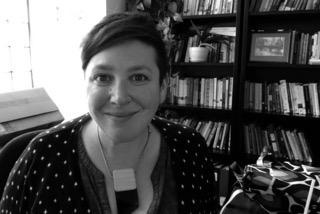Rachel Berger
Associate Professor of History
Fellow of the Simone de Beauvoir Institute at Concordia.
Director, Graduate Program in Individualized Studies (INDI)
2007, PhD in History, University of Cambridge (Clare College)
Rachel is a historian of medicine and the body in South Asia. In the past, she has worked on the history of Ayurvedic medicine in the context of late colonial biopolitics, Hindi-language discussions of gyneacology and reproductive medicine in interwar India, and the visual culture of consumption in the subcontinent. These topics are addressed in Ayurveda Made Modern: Political Histories of Indigenous Medicine in North India, 1900-1955 (Cambridge Imperial and Postcolonial Studies Series, Palgrave MacMillan, 2013).
Her current South Asia-based research project takes up the history of food and nutrition in interwar and early post-colonial India. The SSHRC- and Wellcome- funded project focuses on the emergence of new food technologies in early twentieth century India along scientific, pop cultural and economic axes. She is also working on the history of South Asian foodscapes in Montreal – a project which combines archival research, geo-mapping and oral history to examine the history and movement of South Asian food in the city, and the impact on the Montreal food scene historically.
Rachel has long-standing scholarly and activist interests in queer lives (in theory and practice), reproductive politics, and questions of power in relation to the formalization of political and activist practices. Her new work on this subject, entitled “Reproductive Politics in Queer Times”, centers on evolving discourses of ‘choice’ in neoliberal times. This research engages ethnography, textual & cultural analysis, legal studies, and queer theory to take up questions of reproduction and coupling set against the backdrop of homonationalism and the economization of life.
